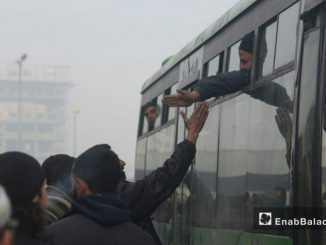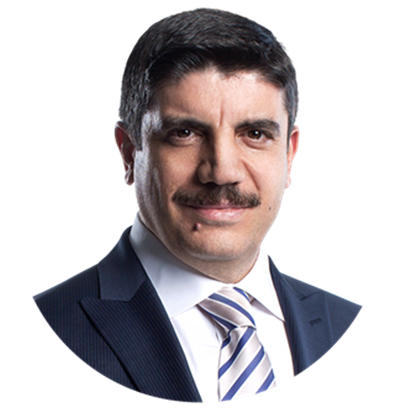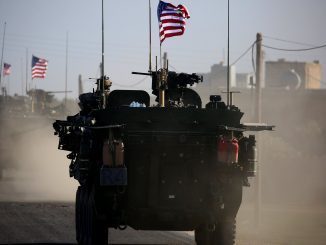
BY: İbrahim Karagül*
We experienced the invasion of Afghanistan. The gate of Central Asia fell in to the hands of the Western forces. We experienced the invasion of Iraq. The heart of Mesopotamia was taken over by Western forces. We experienced the Arab Spring and the geography’s entire hopes of freedom that were buried into the ground. We witnessed Yemen, the terrorism industry, official human trafficking, intelligence organizations as terror bosses, all kinds of incidents insulting the human race. We witnessed more systematic practices such as ethnic disintegration and the sectarian crisis. The geography in which we live has been subjected to dire interventions of which it will feel the effects for a century and is continuing to be so.
Re-establishing Turkey: We have to make a decision
There was a Turkey project right at the center of the plans to re-shape the geography, re-draw the maps and this was probably the main objective of the multinational attacks. If Turkey cannot be taken under control, it would not be possible to redesign the geography. Hence, for the last decade, they have been attacking Turkey one after the other, wave by wave. We realized that all the threats aimed at our country come from our partners, our allies. They almost had Turkey and Russia get into a clash. They even planned this.
This new situation is a big shock for us. Then it is time to change history, time for a new assessment, a new definition, it is time to re-establish Turkey.
Perhaps it is time for a second independence after the founding of the Republic. Today, Turkey is obliged to look at itself, its region, the shift in power around the world, read well the kind of world that is being shaped, re-evaluate all possibilities and reach a decision.
Either this country will remain in its old form, with alliance-threat relations, roll in crises, be gradually dragged into division or it will re-establish itself. We have to find ways of existing through growth and gravitate toward the outside. It is time to liberate ourselves from everything we have memorized, our bigotry and molds that restrict us.
A siege plan in store from the Mediterranean to Iran
Look carefully at the developments just in our south for the last 10 days. The threat-like statements from Baghdad to Ankara have nothing to do with Iraq. What we are experiencing is not a Turkey-Iraq crisis – because there is no Baghdad administration. There is no such thing as the sovereignty of Iraq, under which there are tens of countries. The salvos targeting Turkey are ordered from the U.S. Those who want to build a terrorism corridor on Turkey’s southern border are now trying to hit from Iraq. Those trying to stop the Euphrates Shield are trying to distance us from Mosul and keep us away from both Syria and Iraq.
I want to particularly draw your attention to this map: Map works that wouldn’t even come to the devil’s mind are being carried out to sever all our ties with the Muslim world in the south, from the Mediterranean to the Iranian border, with the geography. This is the plan to siege Turkey. It is the plan to surround our country, confine it and suffocate it there. Also, our defense understanding that will spread to the north of the Mosul-Aleppo stretch is not going to be enough to protect Turkey. When we think and try to foresee not only the present day of the picture in question, but 10 years’ later, an even direr picture becomes clear.
Euphrates Shield and Bashiqa: Stepping back would be suicide
In this aspect, Turkey’s Euphrates Shield intervention gains extraordinary importance. This intervention that needs to go deeper is the most urgent defense reflex for Turkey. Similar interventions from further east is an obligation. Turkey’s military base in Bashiqa also presents extraordinary importance on the same parallel. Regardless of how intense the pressure becomes, stepping back from Bashiqa, withdrawal is suicide and will make our country open to all attacks.
If you notice, the West bloc is trying to force Turkey to step back in the Euphrates Shield and its military presence in Bashiqa. They are displaying an incredible game and making calculations to strike Turkey in the next step on the border – as a matter of fact, inside the country. Whatever the price, these two interventions will extraordinarily relax and protect Turkey.
These clever interventions by Ankara served as the best answer to the complex map works in the region and have become Turkey biggest geopolitical move after its Cyprus intervention. We also need to take into consideration that a while later, as they could not make Turkey step back in Syria and Iraq, they will start to push Turkey again from the inside.
Mosul: Compare the 1926 incidents to today
The U.S.’s efforts to organize the Kurdistan Workers’ Party (PKK) in all these regions in the Mosul operation while trying to keep Turkey on the outside is clear enmity. It provoking Baghdad against Ankara is clear enmity. Its efforts to negate the security shield to be formed in Syria is clear enmity.
Let us think over the Mosul issue once more in terms of the things that were experienced in 1926, what happened in Anatolia right in that period, the things planned in the region and try to understand that period well. There is incredible similarity between what happened in that time and the things happening in the region today. There is benefit in paying attention to the revolts and crises on the inside back then. We have gained serious experience in the last three years that something similar can happen.
There were energy plans and related demographic plans back then – it’s the same today. Let us consider who is behind the demographic change in Iraq and Syria through the PKK in this aspect too. Back then it was the British who were setting games and now the same games are being set mostly by the U.S. Back then the target was Turkey, as it is today.
Ninety years later we are facing the same plan once again. But 90 years ago we were a new state that struggled to stay on its feet. Yet today, we are one of the countries in the world that have caught the brightest rise and rate of strengthening. Then this time the circumstances should definitely not be and will not be like in 1926.
Many states may suddenly start war
We witnessed those dire developments I noted in the introduction of this column, but there is a crisis that is more important than these and it is not the region’s crisis. If a new open world war is going to happen, we need to look for the address elsewhere. Despite all the crises post-Cold War, I never saw the international system get into a deadlock like today, an accumulation of stress at the global scale: a war of states becomes a possibility. This is what scares me.
The big war will happen between the center countries. The situation is so critical that while countries update their state of emergency laws and practices, while they suspend their human rights agreements, it means they are preparing for crises bigger than those in our region.
This clash may break out within Europe, in the Baltic region between Europe and Russia, in the Pacific region between the U.S. and Asian forces. All control mechanisms to protect the world from such a disaster have broken down and are over. The center countries have become so greedy and aggressive with the impact of the economic crisis that a war to include more than one country may erupt in a day.
It will hit the center economies
This is not a horror scenario. It is an assessment that can be seen by all who look carefully. I can see that many countries are in a rapid preparation for such a disaster. This threat neither concerns Turkey nor Turkish economy. Just as the economic crisis in 2008 was the crisis of the bosses of the global economy, this too, will be the same. They normalized the situation a little by burdening developing countries to pay the price of the 2008 crisis. The disaster this time round will completely hit the center economies. The developing countries that manage to remain outside the war will be able to overcome this disaster.
They are trying to blow up our region to postpone this big war, but this time, it seems, they are going to feel the war at home. If one of the reasons of the interventions targeting Turkey is the redesigning of our geography, one other reason is the effort to make clear Turkey’s position in such a clash.
End of the century: Very little left for re-establishment
Turkey’s sudden, determined interventions that mess up calculations where necessary should continue. All fields of intervention that will break the siege along the Mediterranean-Iran stretch should be used. The only thing we are doing in both Syria and Iraq is self-defense and efforts to establish a defense field against threats directed toward Turkey. Every state has such a right. The attacks directed at Turkey for years from Iraqi territory is a clear cause for war anyway.
We are reaching the end of a 100-year period. As the world is being re-established, the geography is being re-established; we, too, are required to re-establish ourselves. Turkey’s political mind has proven it can do this. The Turkish public has embraced this great walk. We need to continue on this path, probably by gaining a little more pace. Because there isn’t much time left.
*Ibrahim Karagül is a Turkish writer and journalist. He is the editor-in-chief of Turkish Yeni Şafak newspaper.
(Published in Yeni Şafak Turkish newspaper on Friday, Oct. 7, 2016)



